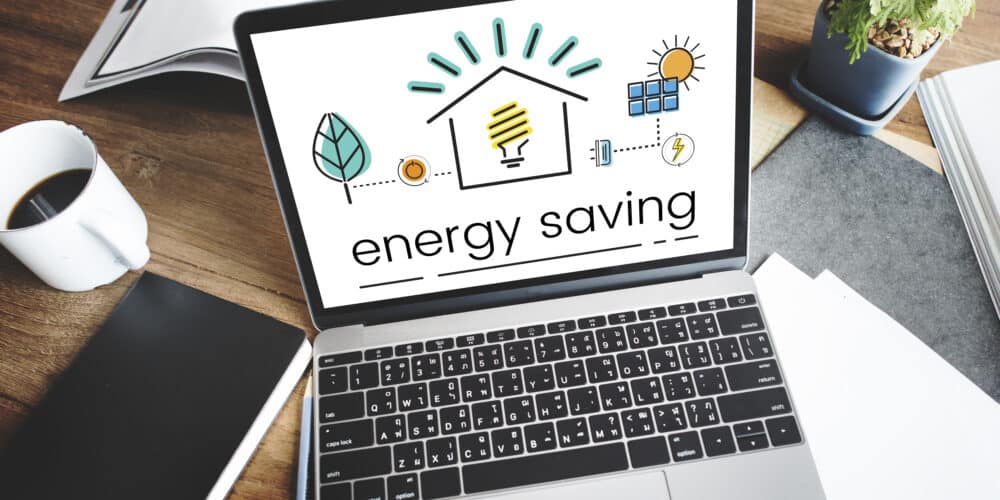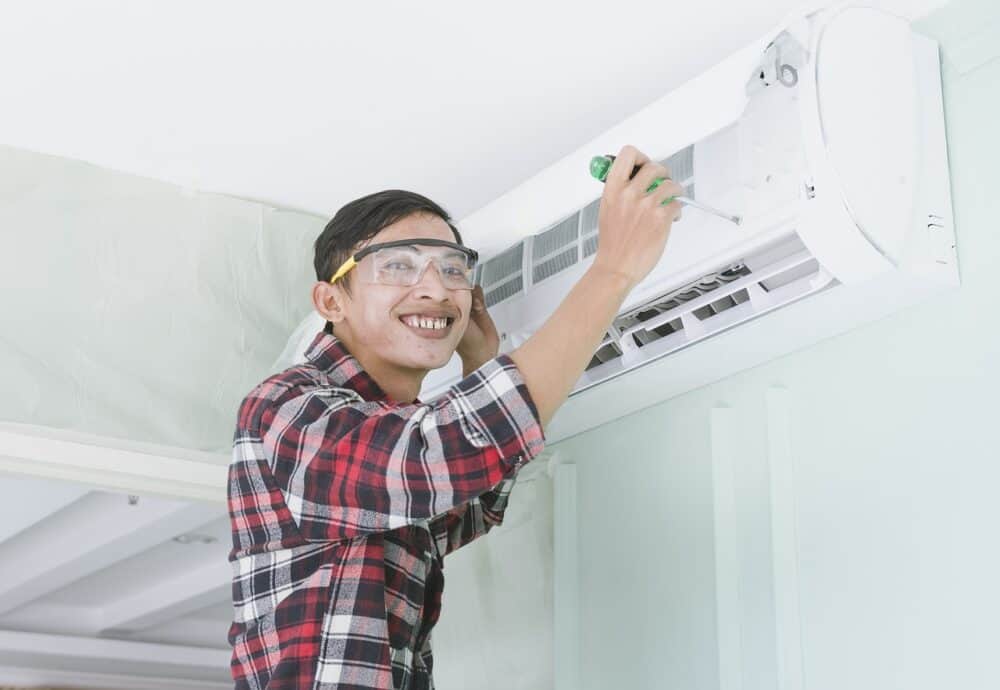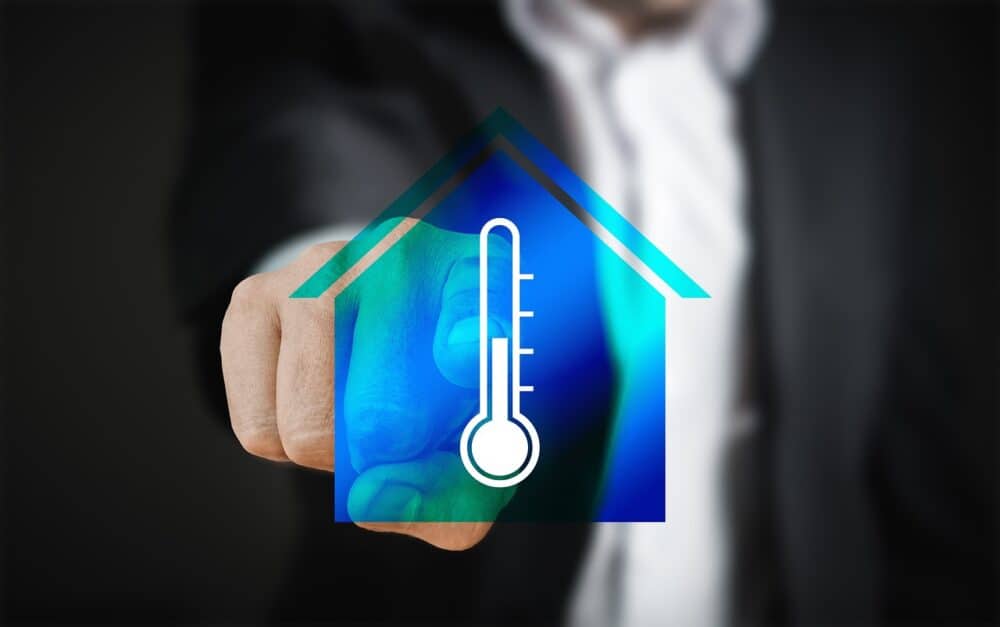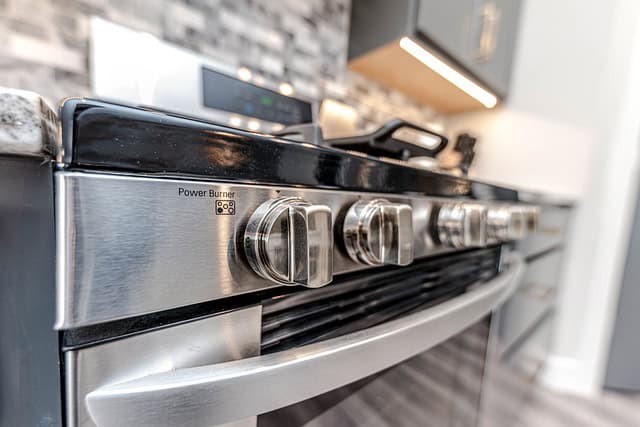Stay Warm at Home But Be Energy Smart to Save Money
Table of Contents
As the colder months approach, staying warm at home becomes essential, but rising energy costs make it crucial to find energy-efficient ways to keep cozy without breaking the bank. Implementing energy-saving tips can help you reduce heating bills and maintain a comfortable temperature. Here’s how you can stay warm and energy smart this winter.
Use a Smart Thermostat for Efficient Heating

One of the best ways to reduce energy consumption and manage your heating costs is by using a smart thermostat. A programmable thermostat allows you to set heating schedules based on your daily routine, ensuring your home is warm when you need it and saving energy when you don’t.
- Set temperatures lower when you’re asleep or away from home and higher when you’re in the living space. This simple adjustment can make a big difference in energy savings.
- According to the Department of Energy, turning your thermostat down by 7-10 degrees for 8 hours a day can save you up to 10% a year on heating bills.
Pro Tip: Use thermostatic radiator valves to control the temperature in individual rooms for maximum efficiency.
Seal Air Leaks to Prevent Heat Loss
Heat loss through drafts and poorly insulated windows and doors can cause your home’s heating system to work harder, leading to higher energy bills. Sealing air leaks is an easy way to keep warm air inside and prevent cold air from entering your home.
- Use weather stripping or caulk around windows and doors to prevent heat from escaping.
- Check damper seals on your fireplace to ensure they’re not letting heat escape when not in use.
Pro Tip: Conduct an energy audit to identify areas where your home is losing heat and seal them effectively.
Harness Natural Light for Warmth

Taking advantage of sunny days during winter is an inexpensive action that can help keep your home warm. Open curtains on south-facing windows to let the natural light and warmth in during the day, and close them at night to trap the warmth inside.
- Thick curtains help insulate windows, keeping warm air in and cold air out during the night.
Pro Tip: Choose thermal-lined curtains for better insulation during the winter months.
Use Ceiling Fans or Space Heaters for Targeted Warmth
Most people associate ceiling fans with cooling during summer, but they can be used to circulate warm air in winter. Set your fans to run at low speed in a clockwise direction to push warm air down into the room.
- For smaller spaces, using a space heater can be an energy-efficient solution to avoid heating your entire home.
- Make sure your space heater has the Energy Star label to ensure energy efficiency.
Pro Tip: Be mindful of safety guidelines from fire departments when using space heaters.
Regular HVAC Maintenance for Better Energy Efficiency

A well-maintained heating system can significantly reduce your energy consumption. Dirty air filters or an inefficient HVAC system can lead to higher heating costs. Regularly servicing your system will keep it running at peak efficiency.
- Change your dirty air filters regularly—clogged filters reduce airflow, forcing your system to work harder and use more energy.
- Schedule routine maintenance to ensure your HVAC unit is functioning properly and to avoid expensive breakdowns during the cold season.
Pro Tip: Check if your HVAC qualifies for incentives under the Inflation Reduction Act for potential savings on energy-efficient upgrades.
Consider Installing Heat Pumps
Heat pumps are an energy-efficient option for heating your home. They work by transferring heat from the outside air or ground into your home, rather than generating heat through combustion like traditional systems. This means they use less energy and are more sustainable.
- Installing a heat pump can reduce your heating bills and contribute to sustainable energy usage.
Pro Tip: If installing a heat pump isn’t an option, consider upgrading to an energy-efficient HVAC system.
Optimize Water Heating

Heating water accounts for a large portion of energy usage in homes. Lowering the temperature of your water heater to 120°F (49°C) can help reduce energy consumption without sacrificing comfort.
- Switch to cold water when washing clothes to save even more energy.
- Insulate your hot water pipes to reduce heat loss and maintain warm water for longer.
Pro Tip: Consider using an electric blanket or hot water bottle to stay warm at night without relying on your home’s heating system.
Energy-Saving Tips for Cooking
Using your kitchen appliances wisely during winter can also contribute to energy savings. Consider using energy-efficient appliances like slow cookers, microwave ovens, or air fryers, which consume less energy than traditional ovens.
- When cooking with your oven, leave the oven door open after you’re finished to let the heat warm up your living space.
- Avoid using incandescent bulbs in your kitchen or home—switch to LED light bulbs, which consume less energy and last longer.
Pro Tip: Opt for meal prepping to minimize the number of times you use energy-intensive appliances.
Layer Up for Comfort

Before cranking up the thermostat, think about adding extra layers to your clothing. Wearing warm layers and snuggling under thick blankets can help you feel comfortable without raising the temperature of your home.
- Hot drinks like tea or hot chocolate can also help you warm up from the inside, reducing the need for excessive heating.
Pro Tip: Keep body heat by layering up in woolen socks and sweaters, especially when sitting still for long periods.
Energy Audit for Long-Term Savings
If you’re unsure where your home is losing the most energy, consider getting a professional energy assessment. This audit will help identify areas where you can make improvements to lower your energy bills and keep your home warmer.
- Many energy providers offer free or discounted energy audits, and you might qualify for assistance under government programs like the Energy Saving Trust or incentives tied to the Energy Price Cap.
Pro Tip: Invest in long-term solutions like improving insulation or upgrading windows to save on heating costs in the long run.
Conclusion
Staying warm in winter doesn’t have to mean higher energy bills. By adopting smart practices, you can keep your home comfortable without overburdening your wallet. Be mindful of your energy consumption, and you will stay warm while saving on utility bills during the coldest months of the year.



